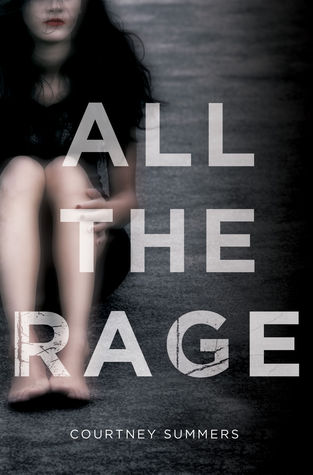 This is a story of a raped girl. The girl came from the
wrong side of the tracks and the accused is the son of the sheriff, who can do
no wrong. The book beings after Romy’s rape. She still attends the same school,
but with an even higher level of intensity as the town joke and outcast. Nobody
believes her and even her best friend betrayed her after the incident. After
all, how could it be rape if she was actively pursuing a relationship with the
accused?
This is a story of a raped girl. The girl came from the
wrong side of the tracks and the accused is the son of the sheriff, who can do
no wrong. The book beings after Romy’s rape. She still attends the same school,
but with an even higher level of intensity as the town joke and outcast. Nobody
believes her and even her best friend betrayed her after the incident. After
all, how could it be rape if she was actively pursuing a relationship with the
accused?
Romy feels like a dead girl after the rape and the only time
she feels like her normal self from before, is at her place of employment. At
work nobody knows her back story. It is when her betraying ex-best friend unexpectedly
comes to her work that everything explodes. It is not an action story, but
there is a level of mystery involved that keeps the story moving along.
All the Rage has
so many levels. The more I think about it the more I decide that it is
brilliant in its own way. It moves slowly with bursts of suspense. I think that
actually makes it more powerful. Everything is not always laid out for you. At
times it is confusing, but to me that mirrors Romy’s character. She is confused
and does crazy and reckless things to try and feel (or sometimes not feel)
something.
Romy is obsessed with her perfect red lips and red nails. It
is detailed many times the exact process she takes with these things before she
is ready. At first I couldn’t figure out the point behind telling us this over
and over. But like I said, not everything it laid out for you. I got the
impression that the reason Romy is obsessed with her nail and lip routine
(which I believe started after the rape) is multi-leveled. It could be that she
uses it as the one thing in her life which she can control. Or, it could be a
mask for her to hide behind. Another part of me wondered if the routine was
actually used to draw attention so others would
look at her. That they would hear her story instead of looking through her. It
could be all three or even more based on what she was feeling at that certain
moment.
I remember in high school learning about all the symbolism
that can be found in a book. I hated it. I had a friend who wrote a short story
for the class and the teacher found a bunch of symbolism in it that changed her
story into something that she didn’t want to portray. Maybe that is how authors
think of us now when we try and critique their work. “You are getting it all
wrong!” Then again, that seems to be what makes a great story. When you can get
so much more than the author even planned with their simple storytelling.
I loved this book. It had great character development and
kept you thinking even after the book ended. You want to figure out why certain
characters acted the way they did, why parts of the story were mentioned over
and over. I wish I had read this for a book club. I want to discuss what others
thought about it before everything falls through the cracks.
P.S. The book has some naughty words with a few descriptive
sentences thrown in. It has a tendency to make the horror more real. It is not
for those who wish to avoid such things.
